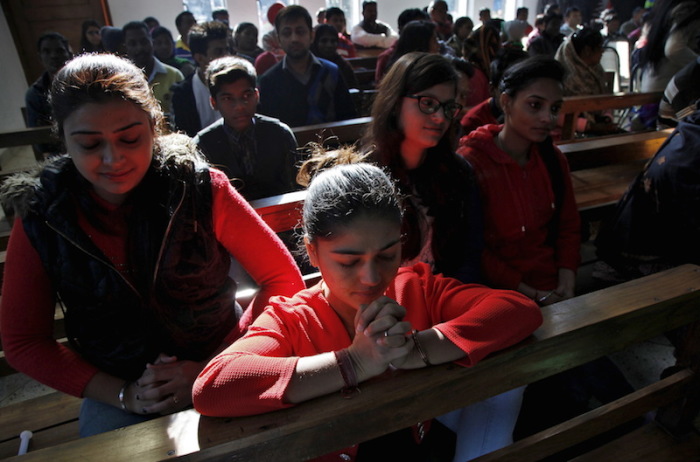India Needs Its Own #ChurchToo and #MeToo Movements, Bishop Joseph D'Souza Warns (Interview)

India is in dire need of its own #ChurchToo and #MeToo movements, a well-respected pastor and human rights leader is urging as recent reports of clergy-related sexual abuse have rocked churches in the Kerala state in the past month.
Bishop Joseph D'Souza, president of the All India Christian Council, traveled to Washington, D.C., this week to discuss religious freedom issues.
But since D'Souza's trip comes as much media attention has surrounded two different cases of alleged sexual abuse by Indian clergy members from different denominational backgrounds, he spoke with The Christian Post Monday about how Indian Christians and churches should respond.
"It would be great to have the #ChurchToo movement in India because India probably needs it more than the West because the #MeToo movement in India is far more needed on several fronts," he said, adding that India's chauvinistic society has bred much male aggression against women and girls even inside the church.
As many women in the United States have come forward this year with allegations of being abused or molested at the hands of clergy members through the #ChurchToo movement, a similar trend has been happening in the south Asian state.
Last month, allegations emerged that a handful of priests with the Indian Orthodox Church in Kerala sexually abused a woman by using her confessions as blackmail to force her to have romantic encounters. The allegations led to the suspension of five priests, four of whom have been charged with rape.
On June 29, an unnamed Catholic nun complained to police that she had been raped in May 2014 by Bishop Franco Mulakkal of Jalandhar and sexually abused by him multiple times over the course of the next two years. However, Mulakkal has denied the claims and asserted that his "conscience is clear." The bishop remains in office.
In July, another case was filed against Orthodox Church Priest Binu George, who was accused of sexuall assaulting a 39-year-old married woman when he called her to his office in the early part of 2014.
Over the last 18 months, as many as 12 priests from different churches in Kerala have reportedly been arrested on accusations of sexual abuse. D'Souza believes more women will come forward with their stories of being abused by church leaders.
"There will be other cases in India that will come out in this area," he predicted. "We have to be very humble because we are Christians but we also have sin in our midst. When it is talked about, we don't need to hide it."
India recently ranked as the most dangerous country in the world for women in a poll of 550 women's rights experts conducted by the Thomson Reuters Foundation. The National Crimes Records Bureau found that in 2015, rapes of minor girls increased by 82 percent. Additionally, 95 percent of rapists were family, friends or neighbors with their victims.
"The Indian church is part of a larger Indian society," D'Souza said. "The Indian society has a very chauvinistic attitude. It is rampant inside and outside the church. It is important that our children and families are taught about the value of the girl child and the woman and frontly deal with the issue of dowry, which so many of our girls end up being abused or harassed or some end up marrying non-Christians."
D'Souza warned that Indian churches must not ignore reports of sexual abuse against clergy and also must not get defensive or try to cover up such abuse.
"Right now, the women of India are looking for people to lead in this issue of protection of women," the bishop stressed. "We can not hide that by saying that this is part of our culture. A culture that does not treat women and men as being both made in the image of God is not reflecting what the Church has to reflect."
"The Church must know that apology and acceptance of wrong is a Christ value and that Jesus had very strong teachings about abused children and women," he added. "We should in this situation, be careful that we are not too worried about the damage to our name because of a few cases but more concerned about making sure righteousness and justice rules for the women of our country."
D'Souza also noted that because sexual abuse and assault are against the law in India, churches should not be afraid to let authorities come and investigate whenever a report of abuse is made.
He suggested that churches shouldn't rely solely on internal investigations.
"If there is a false allegation, then you want a third party saying there is nothing to it," D'Souza stated.
As an example of how churches should handle cases of clergy csexual abuse, D'Souza pointed to the example Pope Francis set in dealing with the abuse scandal in the Chilean Catholic Church.
"We should learn from Pope Francis. When he was brought face-to-face with the Chilean crisis, he first tended to believe the leadership and then realized he was wrong and he apologized and he acted on the clergy," he said. "We need to have zero tolerance for sexual abuse of women."




























